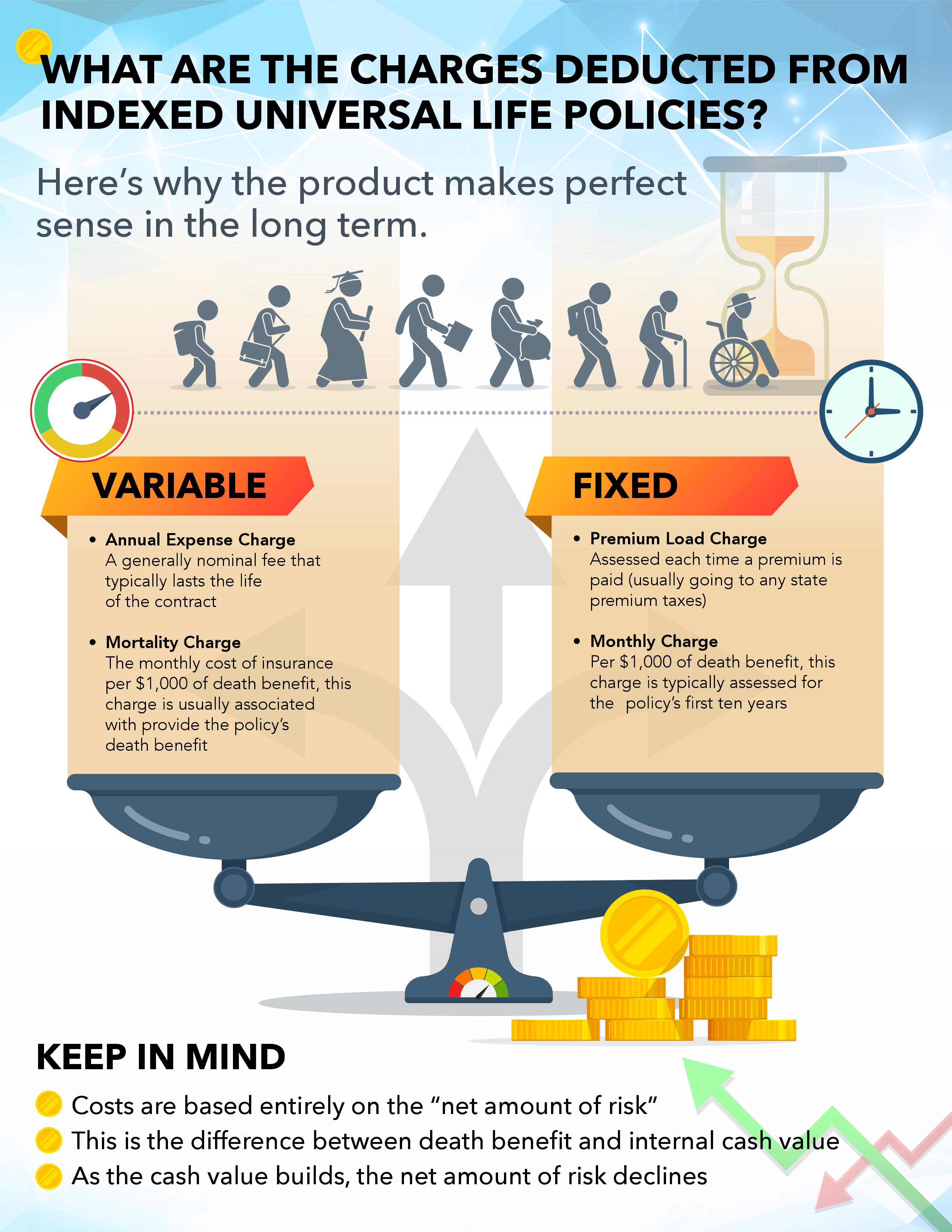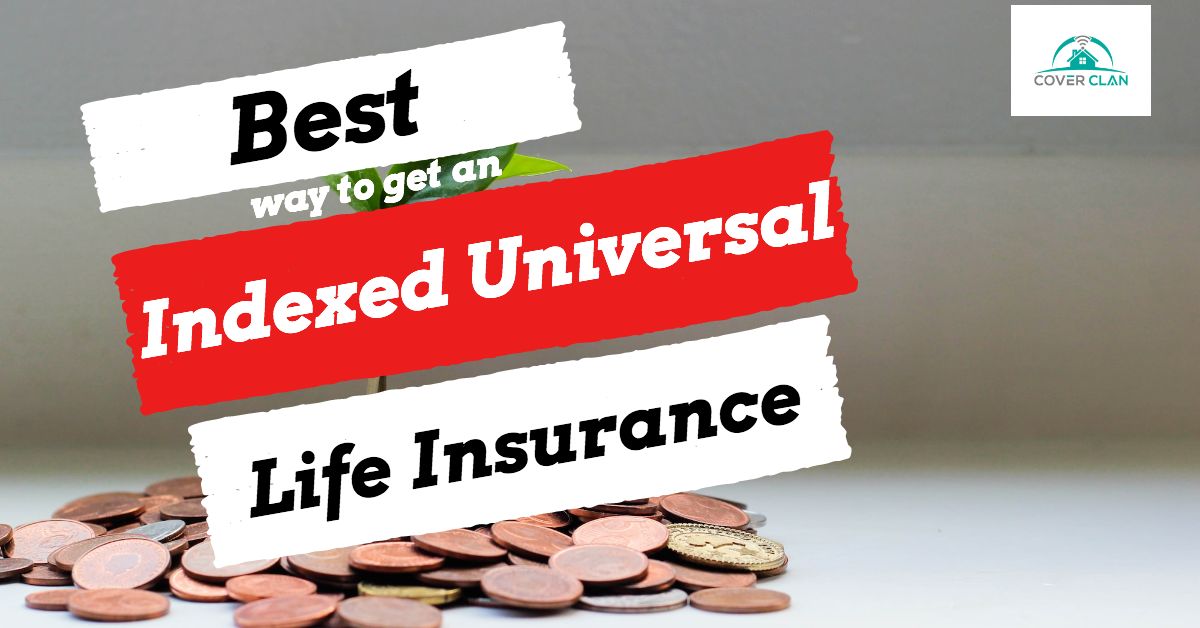All Categories
Featured
Table of Contents
Indexed Universal Life (IUL) insurance is a kind of long-term life insurance plan that combines the functions of traditional global life insurance policy with the possibility for cash money value growth linked to the performance of a securities market index, such as the S&P 500 (Indexed Universal Life insurance). Like other kinds of long-term life insurance policy, IUL offers a survivor benefit that pays to the recipients when the insured passes away
Cash worth build-up: A part of the premium payments enters into a money worth account, which makes passion with time. This cash money value can be accessed or obtained versus during the insurance holder's life time. Indexing option: IUL plans supply the chance for cash worth growth based on the performance of a securities market index.
What should I know before getting Indexed Universal Life Investment?
Just like all life insurance items, there is also a set of dangers that policyholders must understand before considering this type of policy: Market threat: Among the primary dangers related to IUL is market threat. Given that the money worth growth is linked to the performance of a securities market index, if the index executes improperly, the cash value might not grow as expected.

Sufficient liquidity: Insurance policy holders should have a steady economic circumstance and fit with the exceptional payment needs of the IUL plan. IUL enables for versatile costs settlements within certain limitations, however it's vital to maintain the plan to ensure it achieves its desired objectives. Interest in life insurance policy protection: Individuals that require life insurance policy protection and an interest in money worth development may locate IUL appealing.
Candidates for IUL should be able to understand the auto mechanics of the policy. IUL might not be the very best alternative for people with a high tolerance for market threat, those who focus on low-cost financial investments, or those with even more instant financial requirements. Consulting with a qualified monetary consultant that can offer personalized advice is essential prior to thinking about an IUL policy.
All registrants will get a schedule invite and link to sign up with the webinar via Zoom. Can not make it live? Register anyhow and we'll send you a recording of the presentation the following day.
How do I apply for Iul Death Benefit?
You can underpay or miss premiums, plus you may be able to adjust your fatality advantage.
Cash money worth, along with prospective growth of that worth via an equity index account. An option to allot component of the cash money value to a set rate of interest choice.
Policyholders can decide the percentage designated to the repaired and indexed accounts. The value of the selected index is videotaped at the start of the month and contrasted with the worth at the end of the month. If the index increases throughout the month, passion is contributed to the cash money worth.
The 6% is increased by the money worth. The resulting interest is contributed to the money value. Some plans compute the index acquires as the sum of the adjustments through, while other plans take an average of the everyday gains for a month. No passion is attributed to the cash money account if the index drops instead of up.
Why should I have Iul Interest Crediting?
The rate is set by the insurer and can be anywhere from 25% to more than 100%. (The insurance company can likewise change the get involved rate over the life time of the plan.) If the gain is 6%, the participation rate is 50%, and the existing money value total amount is $10,000, $300 is included to the money value (6% x 50% x $10,000 = $300).
There are a number of advantages and disadvantages to think about before acquiring an IUL policy.: Similar to common universal life insurance policy, the insurance holder can boost their premiums or reduced them in times of hardship.: Amounts attributed to the cash worth grow tax-deferred. The cash money worth can pay the insurance policy costs, allowing the insurance policy holder to decrease or stop making out-of-pocket premium repayments.
Who offers flexible Indexed Universal Life Tax Benefits plans?
Several IUL policies have a later maturation date than other sorts of global life plans, with some finishing when the insured reaches age 121 or even more. If the insured is still active during that time, policies pay out the survivor benefit (but not usually the money value) and the profits may be taxed.
:max_bytes(150000):strip_icc()/dotdash-comparing-iul-insurance-iras-and-401ks-Final-71f14693e37d4fb1b0736112179802b5.jpg)
: Smaller policy face worths don't use much benefit over regular UL insurance policy policies.: If the index goes down, no passion is credited to the cash money worth.
With IUL, the objective is to make money from upward activities in the index.: Due to the fact that the insurance coverage company only acquires alternatives in an index, you're not directly bought stocks, so you don't profit when firms pay dividends to shareholders.: Insurers fee costs for managing your cash, which can drain money value.
Who offers Iul Financial Security?

For the majority of people, no, IUL isn't far better than a 401(k) - Indexed Universal Life in terms of saving for retirement. Most IULs are best for high-net-worth people looking for means to lower their taxable income or those that have maxed out their various other retired life options. For every person else, a 401(k) is a much better financial investment automobile since it does not carry the high fees and premiums of an IUL, plus there is no cap on the quantity you might make (unlike with an IUL plan)
While you might not shed any cash in the account if the index decreases, you will not gain passion. If the marketplace turns favorable, the incomes on your IUL will not be as high as a normal investment account. The high expense of costs and fees makes IULs expensive and considerably less inexpensive than term life.
Indexed global life (IUL) insurance coverage provides cash value plus a survivor benefit. The cash in the cash money worth account can gain rate of interest via tracking an equity index, and with some often alloted to a fixed-rate account. Indexed global life policies cap just how much cash you can gather (usually at less than 100%) and they are based on a potentially unpredictable equity index.
What is the most popular Indexed Universal Life Cash Value plan in 2024?
A 401(k) is a better choice for that function due to the fact that it doesn't bring the high fees and premiums of an IUL policy, plus there is no cap on the amount you might gain when spent. The majority of IUL policies are best for high-net-worth people looking for to decrease their taxable revenue. Investopedia does not give tax, financial investment, or monetary services and guidance.
If you're considering purchasing an indexed universal life policy, initial talk to a financial advisor that can discuss the subtleties and provide you a precise photo of the actual potential of an IUL plan. See to it you comprehend how the insurer will compute your passion rate, revenues cap, and costs that could be analyzed.
Latest Posts
Whole Life Vs Indexed Universal Life
Eclipse Indexed Life Insurance
Best Iul Insurance